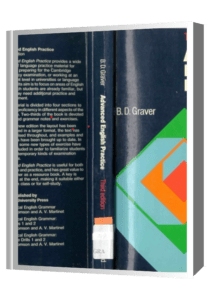Table of Contents

When it comes to learning a new language, there are many different methods and resources available. However, ebooks have become increasingly popular for language learners due to their convenience and accessibility. With the advancement of technology, ebooks can be easily accessed on various devices such as smartphones, tablets, and e-readers, allowing learners to carry their language learning materials with them wherever they go.
One of the advantages of using ebooks for language learning is the ability to customize your learning experience. Unlike traditional textbooks, ebooks often come with interactive features such as audio recordings, quizzes, and exercises. These interactive elements can help you practice your listening, speaking, and writing skills in a more engaging and interactive way. Additionally, ebooks often provide instant feedback, allowing you to track your progress and identify areas that need improvement.
Another benefit of learning German through ebooks is the wide range of resources available. Whether you’re a beginner or an advanced learner, you can find ebooks that cater to your specific needs and proficiency level. From grammar guides and vocabulary books to novels and short stories, there are ebooks available for every aspect of language learning. This variety allows you to choose materials that align with your interests and learning goals, making the learning process more enjoyable and effective.
Furthermore, ebooks offer the flexibility to learn at your own pace. Unlike traditional classroom settings, ebooks allow you to set your own study schedule and progress at a speed that suits you. Whether you have a busy work schedule or other commitments, ebooks enable you to fit language learning into your daily routine. You can study during your commute, during your lunch break, or even before going to bed.
Lastly, ebooks provide a cost-effective solution for language learners. Compared to traditional textbooks, ebooks are often more affordable or even free. Many language learning platforms offer a wide selection of ebooks at a fraction of the cost of physical books. This affordability makes ebooks a practical choice for learners on a budget or those who want to explore different learning resources without breaking the bank.
In conclusion, learning German through ebooks offers numerous advantages. From their convenience and interactivity to the wide range of resources available, ebooks provide a flexible and cost-effective way to improve your language skills. So, if you’re looking to embark on a German language learning journey, consider incorporating ebooks into your study routine and enjoy the benefits they have to offer.
Choose the Right Ebook
The first step in learning German with ebooks is to choose the right materials. There are countless ebooks available for learning German, so it’s important to find one that suits your needs and learning style. Here are a few factors to consider when selecting an ebook:
- Level:Make sure the ebook is suitable for your current language level. Some ebooks are designed for beginners, while others are more advanced. It’s essential to choose a book that matches your proficiency to ensure that you can follow along and understand the content. Assess your language skills honestly and choose an ebook that aligns with your abilities.
- Content:Look for ebooks that cover a wide range of topics and vocabulary. This will assist you in creating a strong linguistic foundation. A comprehensive ebook should include chapters on grammar, vocabulary, reading comprehension, and listening exercises. Additionally, consider your specific interests and goals. If you plan to use German for business purposes, look for an ebook that includes business-related content. If you’re interested in German literature, find an ebook that features famous German works or authors.
- Interactive Features:Some ebooks come with interactive exercises and quizzes, which can be a great way to practice what you’ve learned. These features allow you to test your knowledge, receive immediate feedback, and reinforce your understanding of the language. Interactive exercises can include fill-in-the-blank exercises, multiple-choice questions, and audio recordings for listening comprehension. If you prefer a more interactive learning experience, look for ebooks that offer these additional features.
- Reviews:Read reviews and ratings from other learners to get an idea of the quality and effectiveness of the ebook. Hearing from others who have used the ebook can provide valuable insights into its strengths and weaknesses. Look for reviews that mention the ebook’s clarity, organization, and overall effectiveness in helping learners improve their German skills. Keep in mind that everyone’s learning style and preferences are different, so consider multiple reviews to get a well-rounded perspective.
Create a Study Plan
Once you have chosen an ebook, it’s important to create a study plan to keep yourself organized and motivated. Frequent practice and consistency are essential for language acquisition. The following advice can help you design a productive study schedule:
- Set Goals:Determine what you want to achieve with your German language learning. Whether it’s being able to hold a basic conversation or becoming fluent, setting clear goals will help you stay focused.
- Allocate Time:Decide how much time you can dedicate to studying German each day or week. Be realistic and make sure to create a schedule that fits into your daily routine.
- Break it Down:Set aside smaller, more manageable periods of time for your study sessions.
This will prevent overwhelm and make it easier to stay motivated. - Review Frequently:To help you remember what you’ve learnt, set up frequent review sessions. This will help you retain the information and build a strong foundation in the language.
Additionally, it’s important to consider the different aspects of language learning when creating your study plan. German, like any other language, consists of various components such as vocabulary, grammar, reading, writing, listening, and speaking. To ensure a well-rounded learning experience, you should allocate time for each of these areas in your study plan.
For vocabulary acquisition, you can set aside specific time slots to learn new words and review old ones. This can be done through flashcards, online vocabulary exercises, or even by reading German texts and looking up unfamiliar words. By consistently expanding your vocabulary, you will gradually improve your ability to understand and use the language in different contexts.
Grammar is another crucial aspect of language learning. It provides the structure and rules that govern how words are used in a sentence. To effectively learn German grammar, you can dedicate specific study sessions to understanding different grammar concepts and practicing them through exercises. Online resources, textbooks, and language learning apps can be valuable tools in this process.
Reading is an excellent way to improve your language skills and expose yourself to different vocabulary and sentence structures. Include regular reading sessions in your study plan, where you can choose German texts that match your proficiency level. Start with simpler texts and gradually move on to more complex ones as you progress. Reading newspapers, magazines, novels, or even online articles can help you develop both language comprehension and cultural knowledge.
Writing is another skill that requires practice and feedback. Set aside time for writing exercises, such as journaling, writing short essays, or even participating in online language forums. This will not only improve your writing skills but also give you an opportunity to receive feedback from native speakers or language tutors.
Listening and speaking are essential for developing your communication skills. Include activities in your study plan that focus on listening to German audio materials, such as podcasts, songs, or audiobooks. This will help you improve your listening comprehension and familiarize yourself with the natural rhythm and pronunciation of the language. Additionally, find opportunities to practice speaking German, whether it’s through language exchange programs, online conversation partners, or even recording yourself and listening back for self-assessment.
By considering all these aspects of language learning and incorporating them into your study plan, you will create a comprehensive and well-structured approach to learning German. Remember, consistency and regular practice are key, so make sure to stick to your study plan and adjust it as needed to accommodate your progress and changing goals.

Use Interactive Features
Interactive features that can improve your learning experience are included in many ebooks. Take advantage of these features to practice your German skills and make learning more engaging. Here are some interactive features commonly found in language learning ebooks:
- Audio Recordings: Listen to audio recordings of native German speakers to improve your pronunciation and listening skills. These recordings can be a valuable resource for honing your ability to understand spoken German in real-life situations. By regularly listening to and imitating native speakers, you can develop a more authentic accent and improve your overall comprehension.
- Interactive Exercises:Complete interactive exercises and quizzes to test your understanding of the material. These exercises often require you to actively apply what you’ve learned, reinforcing your knowledge and helping you identify areas that may need further practice. Whether it’s filling in the blanks, matching words to their meanings, or constructing sentences, interactive exercises provide a hands-on approach to language learning.
- Flashcards:Use digital flashcards to practice vocabulary and review grammar concepts. A tried-and-true strategy for learning new words and phrases is to use flashcards. With digital flashcards, you can easily customize your study sets, categorize them by topic or difficulty level, and track your progress. The repetitive nature of flashcard learning helps reinforce your memory and solidify your understanding of key German vocabulary and grammar rules.
- Progress Tracking:Many ebooks have built-in progress tracking features that allow you to see how far you’ve come in your language learning journey. These features can provide motivation and a sense of accomplishment as you reach milestones and see your progress over time. By keeping track of your learning achievements, you can stay motivated and identify areas that may require additional focus.
By utilizing these interactive features, you can make the most of your language learning ebook and maximize your German language proficiency. Incorporating audio recordings, interactive exercises, flashcards, and progress tracking into your study routine will help you develop a well-rounded understanding of the language and accelerate your progress towards fluency.
Practice Regularly
Learning any language, even German, requires constant practice. Make it a habit to practice your German skills regularly, ideally on a daily basis. Here are some ways you can incorporate regular practice into your routine:
- Conversation Partners:Find a language exchange partner or join a language learning community to practice speaking German with native speakers. This will not only give you the opportunity to practice your speaking skills but also expose you to different accents and colloquial expressions.
- Writing Exercises:Set aside time to write in German every day. Start with simple sentences and gradually increase the complexity as you improve. You can keep a journal in German, write short stories, or even participate in online writing challenges to push yourself further.
- Listening Activities: To enhance your listening comprehension, watch German films and TV series or listen to German music and podcasts. This will help you get accustomed to the natural flow of the language, improve your vocabulary, and train your ear to different accents and dialects.
- Review Previous Lessons:Regularly review previous lessons and materials to reinforce what you’ve learned. This can be done by going back to your textbooks, revisiting grammar rules, or practicing exercises that focus on areas you find challenging. Additionally, you can create flashcards to review vocabulary and grammar concepts, ensuring that they stay fresh in your mind.
- Immersive Experiences:If possible, immerse yourself in the German language by visiting German-speaking countries or participating in language immersion programs. Being surrounded by native speakers and using German in real-life situations will greatly enhance your language skills and boost your confidence.
Recall that the secret to learning a language is consistency. By incorporating these regular practice techniques into your routine, you’ll be well on your way to becoming fluent in German.
Seek Additional Resources
While ebooks can be a valuable tool for learning German, it’s also beneficial to seek additional resources to supplement your learning. You could find the following resources valuable:
- Online Courses:Enroll in an online German course to receive structured lessons and guidance from experienced instructors. Many online courses offer a variety of levels, from beginner to advanced, allowing you to progress at your own pace. These courses often include interactive exercises, quizzes, and opportunities for speaking practice with native speakers.
- Language Learning Apps:Use language learning apps that offer German lessons and interactive exercises. These apps are designed to make learning fun and engaging, with features such as flashcards, audio recordings, and games. A few well-known language learning applications are Rosetta Stone, Babbel, and Duolingo.
- Tutoring or Language Exchange:Consider hiring a tutor or participating in a language exchange program for personalized instruction and practice. A tutor can provide one-on-one guidance, helping you improve your pronunciation, grammar, and vocabulary. Language exchange programs allow you to connect with native German speakers who are learning your native language. This way, you can practice speaking in German while helping them practice your language.
- German Language Websites: Visit German language websites for more practice exercises, vocabulary lists, and explanations of grammar.These websites often offer free resources, such as grammar guides, vocabulary quizzes, and listening exercises. Some popular German language websites include Deutsche Welle, Lingoda, and GermanPod101.
- Language Meetup Groups:Join language meetup groups in your area to meet other German learners and practice speaking in a social setting. These groups often organize language exchange events, conversation practice sessions, and cultural activities related to German-speaking countries. Meetup.com and Facebook groups are great places to find language meetup groups near you.
By utilizing these additional resources, you can enhance your German language learning journey and accelerate your progress. Remember to practice regularly, be consistent, and have fun along the way!





